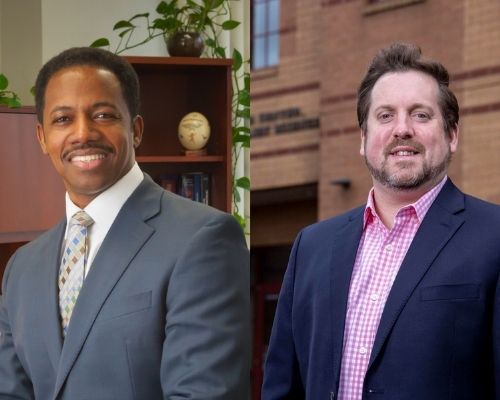The Frontiers in Environmental Science and Health (FrESH) program to train and mentor researchers and healthcare professionals.
The University of Georgia College of Public Health and Morehouse School of Medicine have partnered to offer an innovative training program to promising researchers and healthcare professionals from predominantly underrepresented communities.
Through a series of short, intensive courses, promising graduates, medical students, post-doctoral fellows and junior faculty will have the opportunity to conduct environmental health research using emerging technologies in environmental health science research.
The advanced program, called “Frontiers in Environmental Science and Health” (FrESH), is supported by a grant from the National Institutes of Health’s National Institute of Environmental Health Sciences.
FrESH will focus on the impacts of environmental exposures on human health, with a particular emphasis on highlighting and discussing the disproportionate ways underrepresented minority (URM) communities are affected.
The program is uniquely poised to provide insights into the differences between urban and rural exposures to participants and to promote the need to disseminate findings on environmental impacts on human health to the medical community to aid in diagnosing and treating patients.
The objective is to provide an intensive research experience to young investigators who wish to gain or enhance their knowledge and expertise in environmental health science and as well as provide mentorship that lays the groundwork for academic success and leadership.
Reaching potential trainees from underrepresented communities, especially African Americans and Hispanic Americans, is of primary importance.
Winston Thompson, Chairperson and Professor of the Morehouse School of Medicine Department of Physiology and Professor of Obstetrics and Gynecology, will be Principal Investigator. Charles Easley, who will serve as Co-Principal Investigator, is an Associate Professor in the Department of Environmental Health Science at the UGA’s College of Public Health. Both Drs. Thompson and Easley will serve as mentors for this program and participate in meetings where minorities represent a significant presence.
About the FrESH Program
FrESH will feature lectures, trainee-guided problem-based learning, and small discussions to provide participants with the proper training to pursue careers in the environmental health sciences. Laboratory courses will reinforce concepts from the lectures, challenge established paradigms, and provide the necessary hands-on training and practical experiences needed to become productive environmental health scientists. One strength of the program is access to a national network of mentors and faculty who have devoted their careers to environmental health science research and who have demonstrated passionate commitment to training the next generation of scientists, especially those from URM backgrounds.
Topics will include the following:
- Indoor and outdoor air pollution impacts on human health
- Water pollution impacts on human health
- Ubiquitous and persistent pollutants and their impacts on human health
- Maternal/fetal health and lifetime exposure effects on human health
- Impacts of the global pandemic on human exposures to environmental toxicants
- Dissemination and implementation strategies
During the week of June 5-12, 2022, twenty faculty members will be invited to an eight-day training on the Morehouse School of Medicine campus. Invited senior faculty will participate in FrESH each year as resident and visiting lecturers and lab instructors.
FrESH will collaborate with Morehouse School of Medicine, the University of Georgia, Clark Atlanta University, Morehouse College, Spelman College, and members of the Scientific Advisory Board to ensure that trainees from underrepresented communities are nominated and selected each year. The combination of the leadership and experience of the principal investigators and the richness of the host institution highlight the initiative’s ability to successfully establish an innovative course that will meet the goals of the NIEHS’s Strategic Plan 2018-2023.
Candidates will be able to apply online in Spring 2022 and asked to provide the following:
- Contact information, citizenship, professional status, and how applicants learned of the FrESH program
- Current curriculum vitae listing publications
- A Statement of Intent; The statement of intent request written responses (a) outlining your desire to bring environmental health science topics into their overarching research goals, (b) describing your laboratory and/or research experience, (c) explaining volunteer ships and outreach roles, and (d) describing their future plans, including career objectives
- Two letters of recommendation
Qualified applicants will request partial sponsorship from their home institutions, and the program may subsidize, often fully, participants with funds for travel, lodging, and living expenses. FrESH is committed to providing tuition support to offset the significant expenses associated with laboratories, lecture and lab manuals, and logistical/IT arrangements. Financial assistance will be provided to admitted students based on need as presented in a financial aid request submitted with the admission application.
For more information, please visit https://msm.edu/Research/FrESH/ or email [email protected].
News and updates are also available on Twitter and Instagram, @FrontiersinESH.
Read the original press release at Morehouse School of Medicine.
Posted March 8, 2022.







